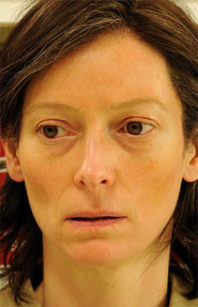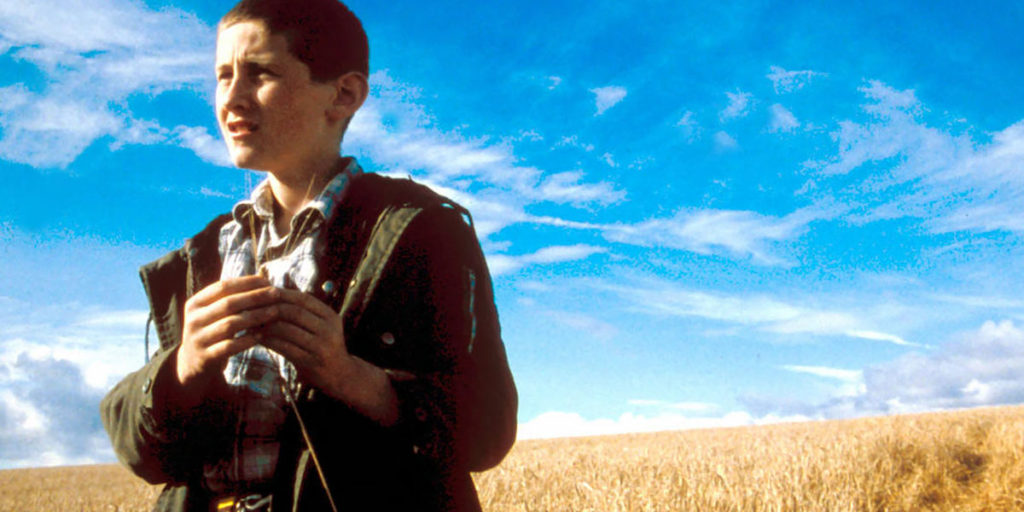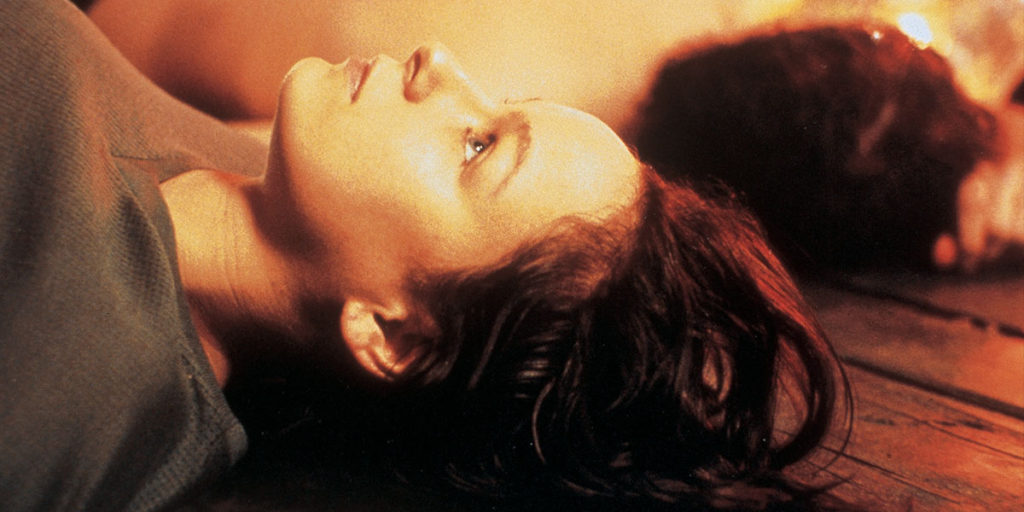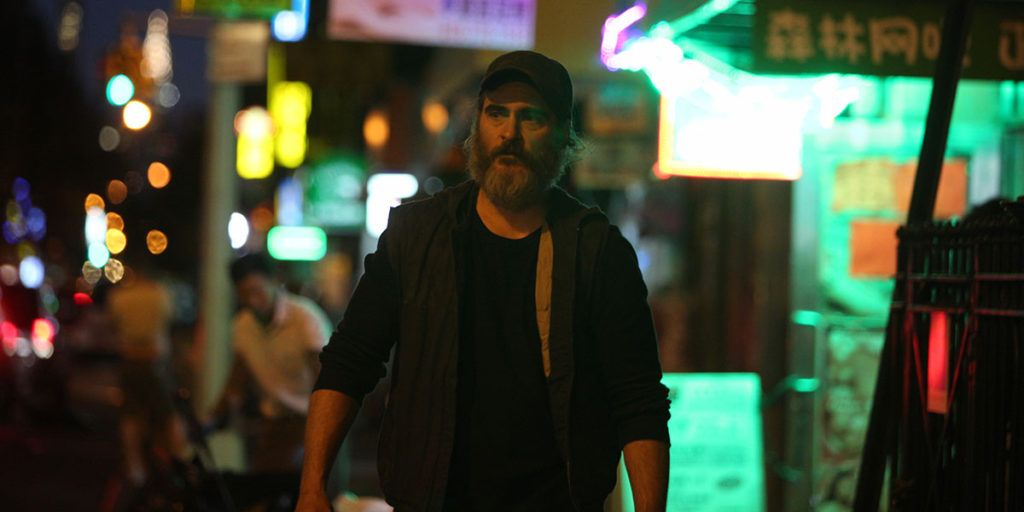
One of the more well-renowned of Tony Zhou’s Every Frame a Painting video essays is on British director Lynne Ramsay. In Zhou’s essay, he argues that Ramsay’s cinema is unique due to its emphasis on small details, where the information conveyed is often a part of a larger whole. A scene’s purpose is frequently tied to an intricate detail; the unique placement of the camera, a sharp jump in time with clear change from a previous shot, a sound bridge to temporally connect two moments. These key moments define a scene, and in turn, these scenes define a whole film.
Open now at the TIFF Bell Lightbox, Camera Work: The Cinema of Lynne Ramsay provides a retrospective of the British directors compact, yet, powerful filmography. Ramsay’s career has arguably been long enough for a deep retrospective, her first feature Ratcatcher was released twenty full years ago, yet the output conspicuously fails to match the output of most directors who worked for a similar length of time and whose work reached similar levels of acclaim. The long stretches in time between pictures have often been attributed to the director’s reportedly difficult nature. For some this “difficult nature,” has been attributed to an industry double standard that has prevented a talented female director from being able to consistently make the brilliant films she is capable of. Both positions would likely agree on Ramsay’s cinema as being particularly controlled and exacting. These are the kinds of films that you see once and think, “I believe I enjoyed that, but I’m not sure,” and then upon subsequent re-watches you come to realize just how beautiful the film you’ve just seen is. There has arguably never been a better time for your first, second, or umpteenth visit into the various worlds of Lynne Ramsay.
As previously mentioned, 2019 marks the twentieth anniversary of Ramsay’s debut feature Ratcatcher, a period piece about the life of a young boy. Here, she channels her inner Terrence Davies, providing an intimate portrait of an England forgotten by the rest of the world. The grime and dirt of early 70s Glasgow amidst its redevelopment program is tactilely rendered, and its lawlessness matches the mindset of the film’s young protagonist James (William Eadie). James is a sensitive young man, and our provides the lens with which we’re to view the world in front of us. It’s a haunting debut feature, and one that fits into the rich British tradition of films focusing on the lives of disaffected youth.

To continue that tradition, Ramsay moves from the masculine to the feminine in the form of her sophomore feature Morvern Callar. With this film, Ramsay solidifies one of the most important traits of her cinema: the unspoken meaning. The proverbial elephant in the room here is Morvern’s dead boyfriend (provided in the film’s opening frames), and the freedom that Morvern (Samantha Morton) seeks from her current life. Ultimately, the film takes a far more whimsical journey than one would expect. It’s a road movie, with the distance between home and the destination unknown acting as a healing substance. Samantha Morton’s performance deserves special mention here. It’s evocative, and invokes one of Ramsay’s other signature traits, an emphasis on the face of her characters.

We Need to Talk About Kevin, meanwhile, is Ramsay’s masterpiece. It’s her first partially American feature, and is her style to the nth degree. Temporally, this film jumps between a multitude of different timelines, and yet, is completely comprehensible throughout. The small details continue to augment the film and provide added depth. Many of these small details involve the titular Kevin (Ezra Miller) making small messes, with his mother Eva (Tilda Swinton) being forced to wrap her head around dealing with them. The unspoken truth in this film is in the title. Kevin is the subject that ultimately needs to be talked about, but Kevin is never really discussed. As part of the retrospective, the film will be playing on 35mm, which should allow the brilliant colour schematics to shine through. We Need to Talk About Kevin is a nightmare world of reds, yellows, and blues, buoyed by Tilda Swinton’s phenomenal (as per usual) performance. Nine passed in between Morvern and Kevin, and the latter only occurred after Ramsay stepped off of production of The Lovely Bones due to creative differences. It’s hard not to believe that she made the right choice in comparing the two films.

The last of Ramsay’s features is her most recent one: You Were Never Really Here. This is probably her most pulpy film, and the subject matter remains as viscerally grisly as Kevin’s was. Many film aficionados fell in love with Jaoquin Phoenix’s turn as a traumatized veteran over the past year, and thus, this film probably needs little in the way of re-introduction. For the uninitiated, however, this is a great time to finally check the film out on a big screen. It’s Taxi Driver with a better understanding of the effects of PTSD, or Point Blank updated for the 21st-Century. Of special note is camera placement throughout the film, which is usually situated in a unique manner. If you check out this one, just be prepared to play Charlene’s “I’ve Never Been to Me,” on repeat throughout your journey home.
Throughout the retrospective many of Ramsay’s shot films such as Short Death and Gasman will play in front of the various feature presentations. We Need to Talk About Kevin remains the most recommended in my eyes, however, I believe all are worth of discussion and multiple viewings. Despite making several incredible features, Ramsay remains one of the more underrated voices working in cinema today. Jump on board the bandwagon while you still can.

